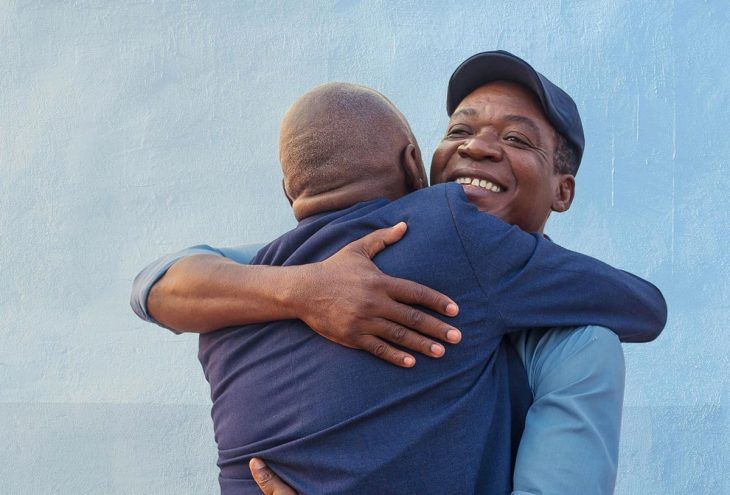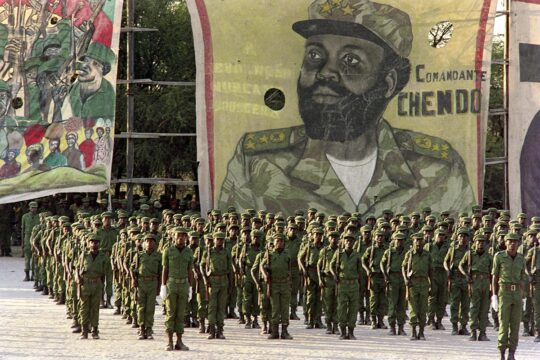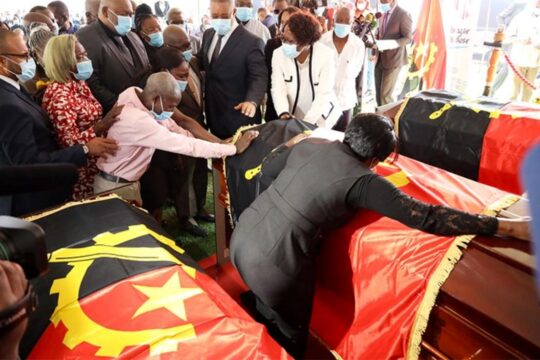After almost two decades of silence in the aftermath of its civil war (1975-2002), the Angolan government on 10 December 2019 changed its course by launching a “Reconciliation Plan in Memory of Victims of the Armed Conflicts in Angola”. Why was this plan established and how likely is it that this new approach will contribute to the healing of open wounds and genuine reconciliation?
Straight after its war of independence against the Portuguese colonizer, Angola went through a devastating civil war between 1975 and 2002. What could be characterized as a ‘proxy Cold-War’ in the 1970s and 1980s, turned in the 1990s into a ‘greed’ based war over the control of natural resources. During the conflict numerous war crimes, and arguably also crimes against humanity, were committed; an estimated 500,000 to 1 million people died as a consequence of the war; the country was infected with landmines and much of its infrastructure was destroyed.
Ever since the end of the civil war, the government’s approach regarding the past has been to “forgive and forget” and to focus on the future. This approach was already rooted in the 2002 general blanket amnesty, agreed upon by the warring factions soon after the killing of the main opposition faction leader Jonas Savimbi, which marked the end of the civil war in 2002. The Peace Agreement called upon parties “in the spirit of National Reconciliation [to] forgive and forget the offences resulting from the Angolan conflict and face the future with tolerance and trust.” High oil prices and China’s eagerness to provide funds in exchange for oil immediately after the war tamed Western calls for more democratization, economic reform and anti-corruption activities vis-à-vis the Angolan regime. As Professor of the international politics of Africa at the University of Oxford Soares de Oliveira argues, this gave the governing MPLA party a degree of autonomy from both external and internal (non-elite) pressures almost unique in contemporary African states.
The May 27 movement brakes the silence
To understand the recent launch of the Reconciliation Plan one has to go back in time, to 27 May 1977. On that day, nearly two years after Angola gained independence from Portugal, the initially Marxist and later socialist MPLA government party responded violently to an alleged “coup attempt” against its leadership. During this event – generally referred to as “a limpeza” (the clean-up) – thousands of persons were massacred or maltreated. Much of the persistent trauma of the ‘27 de Maio’ is caused by fact that this violence was primarily an internal purge within the MPLA with arbitrary arrests and killings whereby the bodies of the executed were not returned to their families for burial. It is commonly said that afterwards there was no family left in Angola that had not somehow been affected by the purges. For years different interest groups, such as the Fundação 27 de Maio, had called for attention for these atrocities.
During former MPLA president Dos Santos’ authoritarian regime (1979-2017) there was little to no political space to bring up the trauma of May 27. This has changed with the coming into office of the new president, João Lourenço, in 2017. “JLo”, as he is commonly referred to, exhibits a different, more transparent and visible leadership style. He also made adherence to international human rights standards one of his focal points. With the changing of power and the new focus of the government voices from the past spoke up again. From 2018 onwards the ‘M27’ association – an organisation uniting orphans resulting from the May 27 purge – was created, urging the Angolan government to “shed light on one of the darkest and most traumatizing phases of Angola’s post-independence history and restore the lost dignity and good names to the victims and their families of this tragic occurrence”. The ensuing debate resulted in a presidential decree issued on 16 May 2019 in which president Lourenço created an inter-ministerial reconciliation commission with the assignment to develop an action plan to honor the victims of political conflicts during the civil war.
From “forget and forgive” to “embrace and forgive”
Although the open wound of 27 de Maio and the pressure exerted by its orphans and affected families was an important catalyst for the creation of the reconciliation plan, the commission’s tasks were not restricted to this particular event. In the presidential decree the commission was given the explicit mandate to address concerns of all victims of political conflicts that occurred between 1975-2002, the entire timespan of the Angolan civil war. It therefore potentially concerns all former warring factions and their actions during the 27 year-long conflict. The approach of the presidential decree is rooted in a series of principles such as reconciliation, historicity, forgiveness and material truth. It seems to be at least partially inspired by the African Union’s Policy on Transitional Justice.
The commission is composed of representatives of various ministries, including the ministries of Defence and Internal Affairs, Former Combatants and Veterans of the Homeland, Mass Media and Security Services. It is chaired by the Minister of Justice and Human Rights, Francisco Queiroz. This composition seems to be at odds with the objective of national reconciliation, as all ministers belong to the MPLA party that has ruled Angola since 1975. Yet, the commission is also expected to consult with representatives of political parties with parliamentary seats, recognized religious authorities, reputable civil society organisations and “other entities whose goals contribute to the achievements of its goals”.
The commission was assigned to prepare and submit for approval by the President a series of actions with a view to paying tribute to the memory of victims of the internal conflicts. The overall objective of these actions is to “cure the psychological wounds of families and to regenerate the spirit of brotherhood among the Angolans through forgiveness and national reconciliation”. The presidential decree identified three broadly described areas: 1) to propose appropriate mechanisms to identify and communicate with families and legal or natural entities with an interest in the matter and obtain the cooperation expected of them; 2) to make suggestions on how the Angolan state should pay dignified tribute to citizens who are victims of political conflicts and; 3) to work with the appropriate institutions to draw up the projects and budgets for the construction of a monument and acts of homage. All these goals, promoted through a Facebook Campaign and website under the slogan “Embrace and Forgive”, have to be realized before 3 July 2021.
What about truth and accountability?
As a civil society representative who has addressed the reconciliation commission explained to us, “the presidential elections have been scheduled for 2022. Having a finished product by 2021, well in advance of the elections, could play out well for the current President.” However it is questionable if the commission will tame newly emerging demands for transitional justice. Last November Edgar Valles, brother of Sita Valles, a political activist who was presumably tortured and killed in 1977, already indicated that he would not settle for memorialization and reconciliation alone. “There can only be true reconciliation and forgiveness if there is a clarification of what happened, if those responsible for the killing are identified (…) and if those who forgive know that those who are being forgiven have remorse,” he wrote. How the commission will deal with such concrete calls for truth and accountability remains to be seen. Similar calls for truth seeking have since been voiced in relation to atrocities committed within and by UNITA, the main armed group that opposed the MPLA during the civil war. Angola’s lid of Pandora’s Box has opened and it is not likely to close soon.
 MAARTEN VAN MUNSTER
MAARTEN VAN MUNSTER
Senior lecturer in human rights law at the European Studies programme of the Hague University of Applied Sciences in the Netherlands.
 JORIS VAN WIJK
JORIS VAN WIJK
Associate professor of criminology at Vrije Universiteit Amsterdam and co director of the Center for International Criminal Justice.





